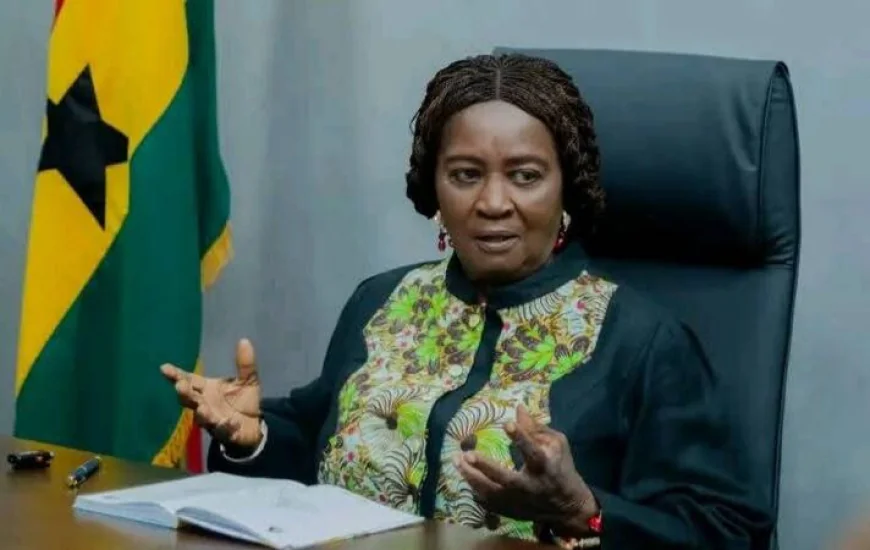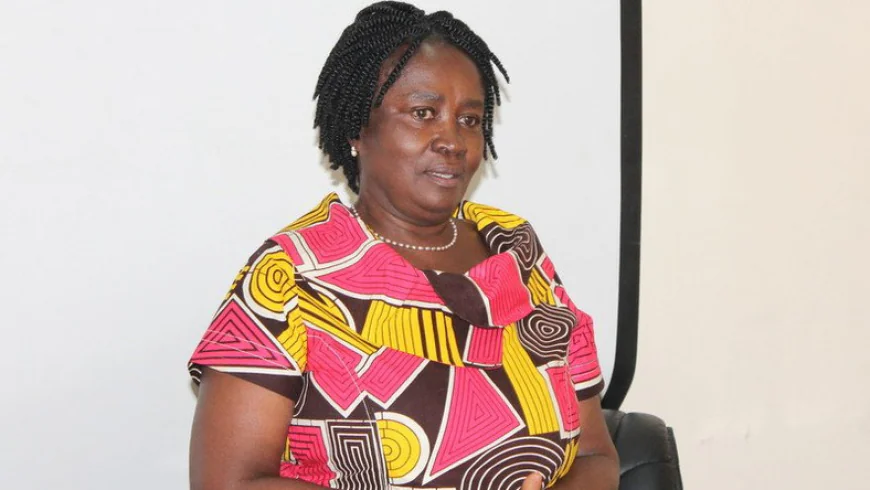Vice President: Bring the fight against corruption back to life in Africa
The vice president, Professor Naana Jane Opoku-Agyemang, has called for a new push to fight corruption across Africa. She used Ghana's past as an example of both early leadership and ongoing problems.

The vice president, Professor Naana Jane Opoku-Agyemang, has called for a new push to fight corruption across Africa. She used Ghana's past as an example of both early leadership and ongoing problems.
She spoke on Friday in Accra under the title "Revitalizing the Anti-Corruption Architecture in Africa: Ghana's Accountability Journey." She stressed the urgent need to strengthen partnerships, laws, and institutions to deal with the changing nature of corruption.
Read Also: Bawumia Jabs Govt Over GHC1 Fuel Levy
She told the continent that even though things had gotten better since the African Union's anti-corruption convention was signed twenty years ago, corruption had gotten more complicated. She said that Ghana showed its early support for the cause by being one of the first countries to sign the convention and send a baseline report to the African Union Advisory Board Against Corruption (AUABC).
“Ghana’s fight has been built on solid laws such as the Whistleblower Act, the Right to Information Act, and the establishment of the Office of the Special Prosecutor.
“The National Anti-Corruption Action Plan (NACAP), which ran from 2015 to 2024, provided strategic direction, and a second phase, NACAP 2, is now being developed using lessons learned from the past,” she said.
The vice president said that Ghana had still faced problems even with these efforts.
"Recent reports from Ghana's own Statistical Service, the Ibrahim Index, and Transparency International show disturbing trends," she said.

She said that bribery cost more than GH¢5 billion in just one year and that the IMF had seen Ghana's ability to fight corruption get worse over the past ten years.
She said that these worries showed that the public wanted real change, and she also said that people were still upset about weak enforcement and political interference. She praised President John Dramani Mahama's leadership in dealing with these issues and his recent efforts to make people more responsible.
Mr. Kissi Agyebeng, the Special Prosecutor, said that his group was in charge of getting back and managing the money made from corruption and corruption-related crimes by public officials, politically exposed people, and private sector workers.
See Also: Biography of Nana Kwame Bediako: Ghana’s Rising Mogul and New Force Leader
He said that the OSP could only do certain things related to civil asset recovery under its declaration of property and income regime. He also said that the mandate only applied to conviction-based procedures.
Mr. Agyebeng also said that the Criminal Offences Act 1960 (Act 29) and Article 246(4) of the Constitution's narrow scope and outlook made the fight against corruption even harder because they mostly went after public officials. He said that people should have their unexplained income sources taken away to help find fraud and unreported income for tax purposes.
Mrs. Yvonne Mutepuka Chibiya, a member of the AUABC board, praised Ghana for strengthening her accountability systems and her commitment to the state parties review mission that was carried out in line with the African Union Convention on Preventing and Combating Corruption.
Mrs. Chibiya said that the AUABC would work with Ghana to make sure that governance frameworks and anti-corruption strategies get better and stronger.
Dr. Joseph Whittal, head of the Commission on Human Rights and Administrative Justice (CHRAJ), stressed how important it is for state actors to work together to fight corruption and how important it is for the courts to be independent.
Justice Srem-Sai, the Deputy Attorney-General, said that Ghana was ready to learn, share, and act as she thought about her own journey of accountability again.


